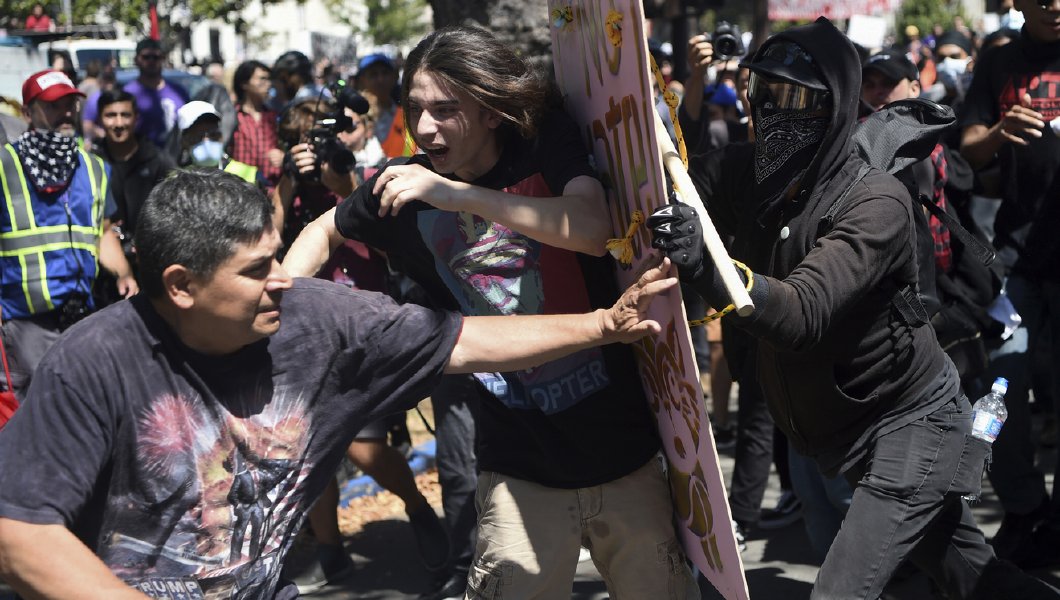Editorial: The Polarized State of Politics
Over the past year, the discussions and even the small declarations of political positions have been dramatically altered into a fiery warzone. If you’re a supporter of any politician, Republican or Democrat, you are easily met with forced hatred from the other side of the aisle.
For folks on the left, stating the conservative stance on social issues – being pro-life, pro-traditional marriage, for limited government, or for free-market capitalism- is considered an outrage. Folks on the right aren’t exempt from this divided nature; calling for increased welfare spending, equality for citizens, LBGT rights, and being pro-choice are all deemed childish and ignorant for them.
This major societal issue brings about one crucial question: how has this happened? The game of politics is inherently alienating to opposing opinions, but how has this incivility spread so swiftly to everyday life?
Some of the earliest signals towards this unfortunate phenomenon can be viewed in late 2015, when Black Lives Matter rallies erupted to fight against racial discrimination and when college protests to fight for essentially restricting free speech stormed the nation. Social Justice Warriors, the name used to recognize these protestors, spread like wildfire. The proclaimed “warriors” followed a leftist set of principles, along with an unrelenting sense of oppression.
As these groups began to gain media attention as well as increased support from liberals, more and more average Americans fell into their trap. Feminism, LGBT rights, safe spaces, and antifa were all erected, changing the face of traditional, civil liberalism into radicalized leftism. You don’t support Black Lives Matter? Forget about rationale, you’re a racist! Against the wage gap? No, it’s not a theory; you’re just sexist! The inception of name-calling and the termination of civil discourse made holding an opinion unfeasible.
What effect did this modern barbarism have on politics? Simply put, everything. The Democratic Party was split amongst two, hardly distinctive groups: radical leftists, and the previous liberals who attempted to distance themselves. Just last month, House Minority Leader Nancy Pelosi forcibly condemned acts of violence induced by extremist antifa groups, declaring, “The violent actions of people calling themselves antifa in Berkeley this weekend deserve unequivocal condemnation, and the perpetrators should be arrested and prosecuted.” However, much of the rhetoric supplied by the radicals insinuated into the minds of everyday Americans, compelling democratic leaders to conform largely to the new establishment.
What remained? A deranged party filled with individuals unable to listen to other opinions, offended by the slightest opposing phraseology, and unwilling to take responsibility for their uncivilized nature.
In response to the nefarious behavior on the left, a new group surfaced. Political correctness, proper gender pronouns, and the restriction of free speech were just some of the leftist outlooks that the new group sought to discredit. Worsening the predicament, then presidential candidate Donald Trump’s brash rhetoric fueled the flames. From what was formerly a general divide between traditional conservatives and far-right reactionaries known as the alt-right, the new group of ‘conservatives’ emerged. They held almost no legitimate principles; rather they were a class that enshrined the value in stigmatizing the left. In simpler terms, they were the anti-left.
Milo Yiannopoulos, a figure well acknowledged for precisely this, exacerbated conditions through his various speeches on college campuses. A native provocateur, Yiannopoulos often made remarks with a standard, “I enjoy upsetting the right people. I love poking fun at earnest censors. I want to push the bounds of what can be said on the Internet.”
In effect, the tarnished left attempted to cluster the three main conservative groups into one – in essence, to transfer their agony. Characters of the anti-left; Donald Trump, Milo Yiannopoulos, Steve Bannon: all viciously ridiculed over a false narrative with the assumption of alliance with the alt-right. Even those of traditional conservative values were slammed into condemnation.
Heavily split, both parties suffered losses. The modest, civil liberals and conservatives were forgotten, forcibly placed into unfavorable positions by radicals. Perhaps damaged the most however, were the American people. Unable to publicize their opinions without fear of backlash, hateful towards other political views, and most importantly, blocked from affable discussion, the public became polarized. Everything became politicized and controversial; who would’ve thought that the statue you walk by everyday was offensive?
And so it even came to the point where you couldn’t lay back on Sunday night to watch your typical football game without getting lectured on the importance of the American flag – or the importance of protest; depending on who was talking. All you wanted to see was the Patriots battle against the Texans, not these goons telling you what to think.
In fact, belligerence from sources intending to manipulate the public is promptly the issue at hand. Take, for example, sports journalist Jemele Hill’s comments on ESPN regarding Donald Trump’s alleged “white supremacy.” Whether you agree or disagree with the attested content of her statement is beside the complication. The fact of the matter is that ESPN is intrinsically a sports network; not a partisan debate. Talk sports, not politics.
Again, the infiltration of politics into daily life is the heart and soul of the conflict. Militant party bias and arrogance disguised as resistance movements towards the other side of the political spectrum must be nullified. This goes for both liberals and conservatives: assert your principles, debate peacefully, and denounce those who do otherwise. Attempt to rationalize other views as another perspective, rather than criticize them as immoral. The state of politics may currently be polarized, but the reintroduction of civility and respect can ultimately restore and unify the nation.


